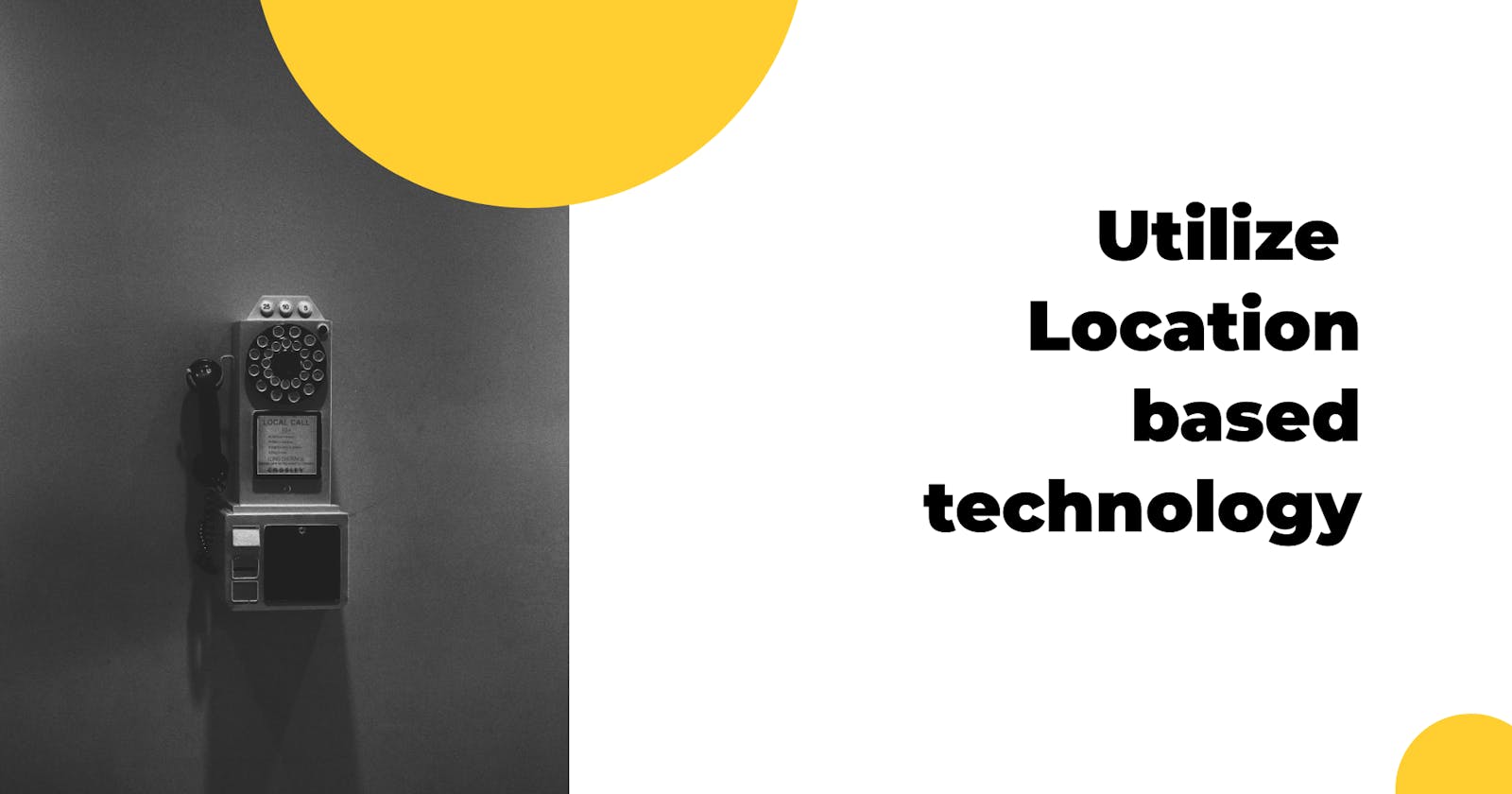Location-based marketing necessitates an online and offline tactic designed to assist businesses plan and implementing marketing activities based on consumers' geographic location. Location analytics is more affordable than ever, which means even small businesses can leverage insights to communicate directly and efficiently with their customers. The technology has brought a rapid change in the world of business which improves sales, boosts customer loyalty, and transforms the store more customer-friendly than ever, even if one has no background in big data.
The concept of geo-marketing is not an innovative one as businesses possess the ability to comprehend the nerve of the marketing related to people based on their location. At present, location-based marketing activities are more sophisticated compared to the conservative methods. This makes it easy to shoot a message to the person walking by their business. It also enables recognizing the customer who steps into a store, and it can deliver more messages to allure specific product purchases along with speedy checkout. One of the reasons for location-based marketing, so happening is the advancement in mobile technology, massive data management, and consumers' faith in the technological revolution. All these concepts have paved the way in making location-based marketing prosperous. The main target of any enterprise is to enchant the customers, and the advent of location-based marketing assists the entrepreneurs in front of the buyers when they are most willing to buy the product. For instance, these days in India women can conduct their small-scale businesses by creating Facebook promotions that are limited to people within their specific zip code which ultimately results in augmentation of the likelihood of approaching the potential leads. While increasing the clientele in the city, it also involves grouping customers, likes, dislikes, fashions, shared interests, activities, or attributes. A tailor-made message can enable us to determine where someone is at a given moment which makes it more relevant to the customer. A break-even needs to achieve by working on collecting, analyzing, and using the location data can help the entrepreneur generate more engagement on promotions, ultimately getting back the investment in an advertisement.
It is very advantageous to make use of the search engines as they predominantly help in reaping the business. The more local customers the businessman enchants the less need to be paid to the customers, and therefore it makes the businessman willing to view the long-term value of investing in SEO. For example, Just Dial, Sulekha, Google My Business, etc. provide the listing for buyers who search for businesses that offer their desired goods or service. It all depends on how creative the SEO is and the content on the website, encouraging five-star reviews from the buyers that ultimately optimize the customer base.
Proximity marketing has the power to transform the customer experience, increase brand affinity, and drive sales uplift. The early adopters are seeing tremendous results and generating highly valuable learnings that they are using to optimize future campaigns, according to the data 60% of consumers are more likely to make an in-store purchase if they receive a relevant notification while browsing. If the business person sends information with a coupon only good for today – for the exact product line they're considering – he might transform the undecided customer into a satisfied one. The hyper-targeted proximity marketing campaign can engage the customers using a familiar app – WhatsApp – then reward them with a coupon to redeem in the store. More than 30% of the customers used the feature more than once, too. When the businessman accurately anticipates the customers' needs with location-based data, the offers become more relevant – and more likely to translate into sales. It is all in going beyond the personalized marketing offers and gives a thought about what kinds of problems may be needed to help the customers solve.
The location-based business also plays a triumphant role for retailers. The retailers can enhance their store layout and learn about customers' preferences. By tracking where the user spends the most time like in the store, retailers can develop specialized deals and recommend products for the customer. The customer feedback can assist the seller initiate services like the data tracked through the technology that will help the seller fine-tune the offer and which ultimately makes the businessman more valuable to the customers. What makes it easier is the data adjustment of the storefront to navigate and highly personalize---that leads to the make-or-break difference between the businessman and the competitors.
Location analytics can and should fuel customer loyalty efforts. Creative contests, rewards, points, and specialized offers will all help increase the engagement and drive of repeat sales which are a snap to set up and track with technology. If a businessman is looking for a more strategic approach to the marketing communications plan, then he/she should consider integrating location-based marketing tactics. A marketing strategy that emphasizes location data will likely yield a better return than a sweeping communications strategy. The business doesn't need to jump right into a full-fledged geo-fencing campaign rather, and it is advisable to try starting with collecting and analyzing the location data on the current customer base. If nothing else, this will shed some light into where the businessman may want to invest his marketing resources. Customers aren't just looking for personalized offers – they need reminders that the businessman appreciates their presence as buyers. After all, they have plenty of choices – and there is a plethora of competition. To conclude, great marketing is about getting in front of the right people at the right time. If the business person cannot pinpoint where the targeted audience is, then he will have a hard time getting the message in front of the right people at the right time.
